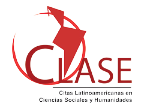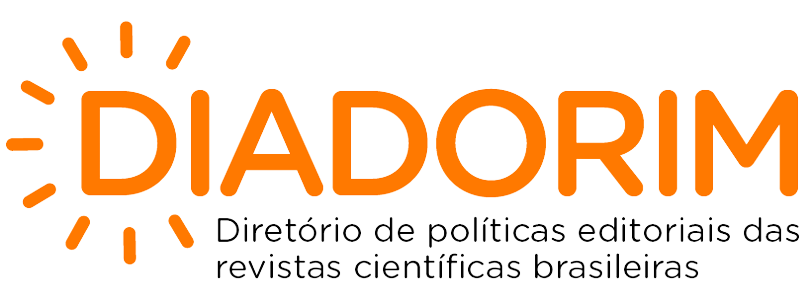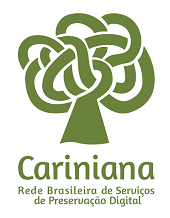The challenges of the valuation of memory and local history in Cambira (PR) in relation to the studies of social interections within the parish limit
DOI:
https://doi.org/10.5433/2238-3018.2015v21n1p199Keywords:
Teaching and learning history, Classroom, ReadingAbstract
This article presents a study of a history lesson on the theme of ancient Indian, extracted from the database generated by the doctoral research, held in September 2013, titled "Reading practices in history classes: a case study ethnographic "which sought to investigate how reading the history texts was socially constructed in a history classroom of 5th grade / 6th grade of elementary school of the Municipal School Piurucetti Eleonora of Belo Horizonte teaching public network. The theoretical and methodological principles of analysis were based on a contemporary trend analysis of the interactions in the classroom: the Interactional Ethnography. From this perspective, we seek to understand how to read the history texts was discursively constructed by the members through their interactions, verbal or non-verbal, and how these constructions influence the opportunities available to students to read and learn history in the classroom observed.Downloads
Download data is not yet available.
References
AISENBERG, B. Una aproximación a la relación entre la lectura y el aprendizaje de la Historia. Revista Íber n. 43. Didáctica de Ciencias Sociales, Geografía, Historia. Barcelona: Editorial Grao, p. 94-104. 2005.
ANDRADE, L. T.; GREEN, J.; CASTANHEIRA, M. L. Becoming an ethnographer: exploring the power of different epistemological approaches to analysing literacy events in a History Class in Brazil In: Ethnography and Education Conference, University of Oxford, England. 2012.
ANDRADE, L. T. Praticas de Leitura em aulas de História: um estudo de caso etnográfico. Belo Horizonte: UFMG MG (Dissertação, Mestrado em Educação). 2006.
BLOCH, M. Apologia da história ou o ofício de historiador. Rio de Janeiro: Jorge Zahar. 2002.
BLOOME, D.; EGAN-ROBERTSON, A. (1993). The social construction of intertextuality in classroom reading and writing lessons. Reading Research Quarterly. v. 4., n. 28, p. 305–333. 1993.
BLOOME, D.; BAILEY, F. A special issue on intertextuality. Linguistic and Education. v.4. 1992.
BRAICK; MOTA. História: das cavernas ao terceiro milênio, Editora Moderna. 2006. CARIE, N. S. de. Usos dos livros didáticos em sala de aula: a ortodoxia do professor. Monografia apresentada ao Curso de História da Universidade Federal de Minas Gerais. Belo Horizonte. 2004.
CASTANHEIRA, M. L. Aprendizagem Contextualizada: discurso e inclusão na sala de aula. Belo Horizonte: Autêntica, v. 1. 2004.
CHOPAIN, F. A. História dos livros didáticos e das edições didáticas: sobre o estado da arte. Rev. Educação e Pesquisa, São Paulo, v. 30, n. 3, p. 549-566, set./dez. 2004.
COELHO, A.; SIMAN, L. M. C. O papel da ação mediada na construção de conceitos históricos. Anais do II Encontro Internacional Linguagem, Cultura e Cognição: reflexões para o ensino - CD-ROM-, Campinas: Graf. FE. 2003.
COLLINS, E.; GREEN, J. Learning in Classroom Settings: making or breaking a culture. In: MARSHALL, H. (Ed.). Redefining Students Learning, p. 59-85. 1994.
DILTHEY, W. A construção do mundo histórico nas ciências humanas São Paulo, UNESP. 2010.
ESPÍNDOLA, D. P. A. O uso do livro didático em sala de aula: possibilidades para a prática do ensino de história. Dissertação, Mestrado em Educação), Faculdade de Educação da Universidade Federal de Minas Gerais. 2003.
FLORIANI, A. Negotiating what counts: Roles and relationships, content and meaning, texts and context. Linguistics and Education, 5 (3 & 4). Norwood, NJ: Ablex, p. 241-274. 1993.
GEE, J.; GREEN, J. Discourse Analysis, learning, and social practice: A methodological study. Review of Research in Education. American Educational Research Association. Washington, D.C., 23, p. 119-169. 1998.
GREEN, J. L; DIXON, C. N; & ZAHARLICK, A. Ethnography as a logic of inquiry. In: FLOOD, J; LAPP, D; SQUIRE, J. R; & JENSEN, J. M. Handbook of research on the teaching of the English language arts. 2nd ed. Lawrence Erlbaum associates, publishers, p. 201-224. 2002.
GUMPERZ, J. J. Contextualization and understanding. In: DURANTI, A. & GOODWIN, C., (eds.), Rethinking Context. Cambridge, UK: Cambridge University Press, p. 229-252. 1992.
LAUTIER, N. À la rencontre de l’ histoire. Presses Universitaires du Septentrion, Paris. 1997.
MENEZES, B. de. Fontes visuais, cultura visual, História visual: balance provisorio, propostas cautelares. Revista Brasileira de História; v. 23, n. 45, p. 11-36, jul. 2003.
MONTEIRO, A. M. A história ensinada: algumas configurações do saber escolar. História & Ensino. v. 9. p. 9-36. 2003.
PEREIRA, J. S.; CARVALHO, M. V. Sentidos dos tempos na relação museu-escola. Cadernos CEDES (Impresso), v. 30, p. 383-396. 2010.
ROCHA, H. A. B. O lugar da linguagem no ensino de história: entre a oralidade e a escrita. Tese (Doutorado em História) – Universidade Federal Fluminense. 2006.
SANTA BARBARA DISCOURSE GROUP. Constructing literacy in classrooms: Literate action as social accomplishment. In MARSHALL, H. (ed.), Redefining student learning: Roots of educational change (p. 119-150). Norwood, NJ: Ablex 1992.
SIMAN, L. M. C; ANDRADE, L. T. Aplicando principios y prácticas culturales de lectura del libro didáctico en la clase de historia. Revista Reseñas de Enseñanza de la Historia, v. 6, p. 193-213. 2008.
SIMAN, L.M.C; ANDRADE, L.T. O livro didático lido em sala de aula de história. São Paulo: Unicamp. 2010.
VILLALTA, L. O livro didático de história no Brasil: perspectivas de abordagem. Revista Pós-História, Assis, SP, v. 9, p. 39-59. 1997.
ANDRADE, L. T.; GREEN, J.; CASTANHEIRA, M. L. Becoming an ethnographer: exploring the power of different epistemological approaches to analysing literacy events in a History Class in Brazil In: Ethnography and Education Conference, University of Oxford, England. 2012.
ANDRADE, L. T. Praticas de Leitura em aulas de História: um estudo de caso etnográfico. Belo Horizonte: UFMG MG (Dissertação, Mestrado em Educação). 2006.
BLOCH, M. Apologia da história ou o ofício de historiador. Rio de Janeiro: Jorge Zahar. 2002.
BLOOME, D.; EGAN-ROBERTSON, A. (1993). The social construction of intertextuality in classroom reading and writing lessons. Reading Research Quarterly. v. 4., n. 28, p. 305–333. 1993.
BLOOME, D.; BAILEY, F. A special issue on intertextuality. Linguistic and Education. v.4. 1992.
BRAICK; MOTA. História: das cavernas ao terceiro milênio, Editora Moderna. 2006. CARIE, N. S. de. Usos dos livros didáticos em sala de aula: a ortodoxia do professor. Monografia apresentada ao Curso de História da Universidade Federal de Minas Gerais. Belo Horizonte. 2004.
CASTANHEIRA, M. L. Aprendizagem Contextualizada: discurso e inclusão na sala de aula. Belo Horizonte: Autêntica, v. 1. 2004.
CHOPAIN, F. A. História dos livros didáticos e das edições didáticas: sobre o estado da arte. Rev. Educação e Pesquisa, São Paulo, v. 30, n. 3, p. 549-566, set./dez. 2004.
COELHO, A.; SIMAN, L. M. C. O papel da ação mediada na construção de conceitos históricos. Anais do II Encontro Internacional Linguagem, Cultura e Cognição: reflexões para o ensino - CD-ROM-, Campinas: Graf. FE. 2003.
COLLINS, E.; GREEN, J. Learning in Classroom Settings: making or breaking a culture. In: MARSHALL, H. (Ed.). Redefining Students Learning, p. 59-85. 1994.
DILTHEY, W. A construção do mundo histórico nas ciências humanas São Paulo, UNESP. 2010.
ESPÍNDOLA, D. P. A. O uso do livro didático em sala de aula: possibilidades para a prática do ensino de história. Dissertação, Mestrado em Educação), Faculdade de Educação da Universidade Federal de Minas Gerais. 2003.
FLORIANI, A. Negotiating what counts: Roles and relationships, content and meaning, texts and context. Linguistics and Education, 5 (3 & 4). Norwood, NJ: Ablex, p. 241-274. 1993.
GEE, J.; GREEN, J. Discourse Analysis, learning, and social practice: A methodological study. Review of Research in Education. American Educational Research Association. Washington, D.C., 23, p. 119-169. 1998.
GREEN, J. L; DIXON, C. N; & ZAHARLICK, A. Ethnography as a logic of inquiry. In: FLOOD, J; LAPP, D; SQUIRE, J. R; & JENSEN, J. M. Handbook of research on the teaching of the English language arts. 2nd ed. Lawrence Erlbaum associates, publishers, p. 201-224. 2002.
GUMPERZ, J. J. Contextualization and understanding. In: DURANTI, A. & GOODWIN, C., (eds.), Rethinking Context. Cambridge, UK: Cambridge University Press, p. 229-252. 1992.
LAUTIER, N. À la rencontre de l’ histoire. Presses Universitaires du Septentrion, Paris. 1997.
MENEZES, B. de. Fontes visuais, cultura visual, História visual: balance provisorio, propostas cautelares. Revista Brasileira de História; v. 23, n. 45, p. 11-36, jul. 2003.
MONTEIRO, A. M. A história ensinada: algumas configurações do saber escolar. História & Ensino. v. 9. p. 9-36. 2003.
PEREIRA, J. S.; CARVALHO, M. V. Sentidos dos tempos na relação museu-escola. Cadernos CEDES (Impresso), v. 30, p. 383-396. 2010.
ROCHA, H. A. B. O lugar da linguagem no ensino de história: entre a oralidade e a escrita. Tese (Doutorado em História) – Universidade Federal Fluminense. 2006.
SANTA BARBARA DISCOURSE GROUP. Constructing literacy in classrooms: Literate action as social accomplishment. In MARSHALL, H. (ed.), Redefining student learning: Roots of educational change (p. 119-150). Norwood, NJ: Ablex 1992.
SIMAN, L. M. C; ANDRADE, L. T. Aplicando principios y prácticas culturales de lectura del libro didáctico en la clase de historia. Revista Reseñas de Enseñanza de la Historia, v. 6, p. 193-213. 2008.
SIMAN, L.M.C; ANDRADE, L.T. O livro didático lido em sala de aula de história. São Paulo: Unicamp. 2010.
VILLALTA, L. O livro didático de história no Brasil: perspectivas de abordagem. Revista Pós-História, Assis, SP, v. 9, p. 39-59. 1997.
Downloads
Published
2015-03-02
How to Cite
Andrade, L. T. (2015). The challenges of the valuation of memory and local history in Cambira (PR) in relation to the studies of social interections within the parish limit. História & Ensino, 21(1), 199–228. https://doi.org/10.5433/2238-3018.2015v21n1p199
Issue
Section
Artigos
License
História & Ensino adota a licença CC-BY esta licença permite que os reutilizadores distribuam, remixem, adaptem e criem a partir do material em qualquer meio ou formato, desde que a atribuição seja dada ao criador. A licença permite o uso comercial.














